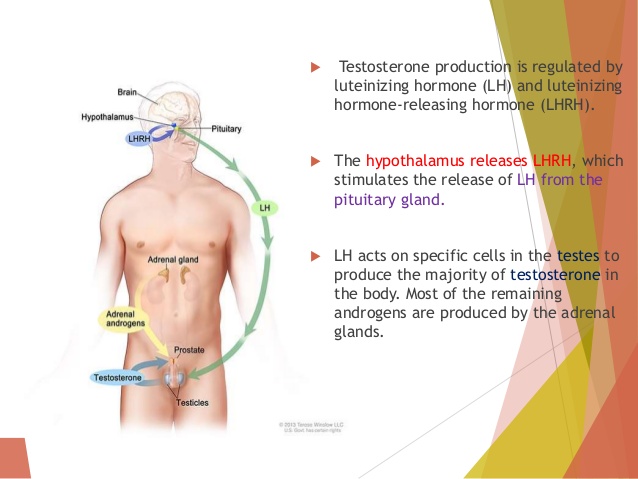Prostate matters is a not for profit organisation committed to providing free information about prostate issues from leading Clinical Authorities.
Prostate cancer treatment – Hormone therapy


UNDER DEVELOPMENT
Hormone treatment for prostate cancer is very common and works as follows.
The growth of prostate cancer cells is stimulated by male hormones called androgens, namely testosterone and dihydrotestosterone (DHT). These are produced primarily in the testes (testicles) and a small amount in the adrenal glands, as well as by prostate cancer cells themselves.
Preventing production of these hormones, or stopping them entering the cancer cells, can sometimes shrink the tumour or stop it growing for a time.
Hormone Therapy for local disease:
- for three months before This is known as Adjuvant Hormone Therapy when used prior to radiotherapy and as a Neo-Adjuvant Therapy prior to starting permanent seed brachytherapy and before and after high dose ratebrachytherapy
- for two to three months prior to High Frequency Ultrasound(HIFU) treatment. SURELY NOT. WHY ? This is local treatment and I thought Hormone Therapy was never used for this ? See bold section below.
Hormone Therapy for locally advanced disease
- Locally advanced disease describes if the cancer has spread to the area just outside the prostate gland. In this case, Hormone Therapy is used before, during and after radiotherapy to increase its effectiveness and reduce the likelihood of recurrence. TheHormone Therapy may start up to six months before radiotherapy and may continue during and after radiotherapy, for up to three years.
- Hormone Therapy may also be used if cancer recurs following surgery or radiotherapy.
Advanced prostate cancer
If the cancer has spread too far to be effectively treated with radiotherapy or surgery, or there are particular circumstances precluding their use, such as illness and limited life expectancy, then Hormone Therapy can be used as a palliative to relieve symptoms for the remaining lifetime of the patient.
Types of hormone treatment:
Orchiectomy (surgical castration) is the most radical treatment. The testes, the main source of production of androgens, are removed. This stops prostate cancers growing for a time.
Many men, especially younger men, balk at this treatment for obvious reasons. It is permanent as are the main side effects, including, loss of libido, erectile dysfunction and often weight gain. (is this really a Hormone treatment – isn’t it a surgical one ?)
Drug treatments
There are three different classes of drugs. The first are drugs that cause chemical or medical castration – they lower the amount of androgens produced by the testes. However unlike orchiectomy, the effects are reversible. The second class of drugs bind to the androgen receptors in the cancer cells and therefore block the take up of androgens by those cells without affecting hormone production by the testes. Sometimes these two classes of drugs are used in combination. The third class of drugs stop cholesterol (really ?!) in the testes, adrenal glands, and prostate cancer cells from being converted into testosterone.
This next section is pretty hard going. Can you simplify – what do you use when ?
LHRH Agonists and Antagonists
Luteinising Hormone-Releasing Hormone) Agonists (LHRH) are the class of drugs that cause chemical castration.
When androgen levels in the body are low, this causes the pituitary to make luteinizing hormones which stimulate the testes to produce androgens. Initially the LHRH agonists stimulate the production of luteinising hormone causing what is known as an androgen flare – an increase in the production of androgens. The continued presence of high levels of LHRH agonists causes the pituitary to stop making luteinising hormone which in turn causes the testes to stop producing androgens.
The LHRH drugs prescribed in the UK are:
- Goserelin
- Triptorelin
- Buserelin acetate
LHRH Antagonists act by binding to the LHRH receptors in the pituitary gland and therefore preventing the secretion of lutenising hormone, which in turn causes the testes to stop producing androgens. In this case, there is no androgen flare. It is not available in every hospital in the UK. It is used for cancer that has spread (metastasised) to the bones and can prevent problems being caused to the spinal chord by metastasis near the vertebrae. When do you use this ?
The drug used in the UK is Degarelix .
Antiandrogens
This second class of drugs bind to androgen receptors reducing the ability of androgens to stimulate prostate cancer cell growth. This class of drugs do not lower the overall androgen level in the body and are usually used in combination with LHRH Agonists.
There are several drugs prescribed in the UK. They are:
- Bicalutamide
- Flutamide
- Cyproterone acetate
Androgen Synthesis inhibitors (ARE THESE AVAILABLE OR USED IN THE UK?)
Neither LHRH Agonists or Antagonists can prevent the adrenal glands or the prostate cancer cells from producing androgens. To perform this function, there is a third class of drugs called Androgen Synthesis Inhibitors. These work by inhibiting an enzyme CYP17 which is found in the testes, adrenals and prostate cancer cells. This enzyme is key for the conversion of cholesterol to testosterone. Inhibiting it prevents production.
Potential side effects of hormone treatment
There are several side effects from taking hormone therapy, particularly with the first two classes of drug. These include:
- Reduction or absence of libido (sexual desire)
- Erectile dysfunction (impotence)
- Shrinkage of testicles and penis
- Hot flushes, which may get better or go away with time
- Weight gain
- Mental ‘dullness’
- Breast tenderness and growth of breast tissue
- Osteoporosis
- Loss of muscle mass
- Fatigue and tiredness
- Increased cholesterol levels
- Depression
- The risk of heart disease and stroke is increased, as it is the incidence of hypertension (high blood pressure) and Diabetes
Hormone treatment for prostate cancer sometimes fails and is replaced by Chemotherapy or Immunotherapy in some instances.

Prostate matters is a not for profit organisation that is committed to providing free expert advice about prostate issues from leading Clinical Authorities
In memory of Riki
PROSTATE MATTERS
Copyright Disclaimer: We try to acknowledge copyright as appropriate. If we have used something without acknowledging copyright, this is inadvertent. Please let us know by emailing info@prostatematters.co.uk
Site design and technical development by Webtoys | Intelligent Digital Media

